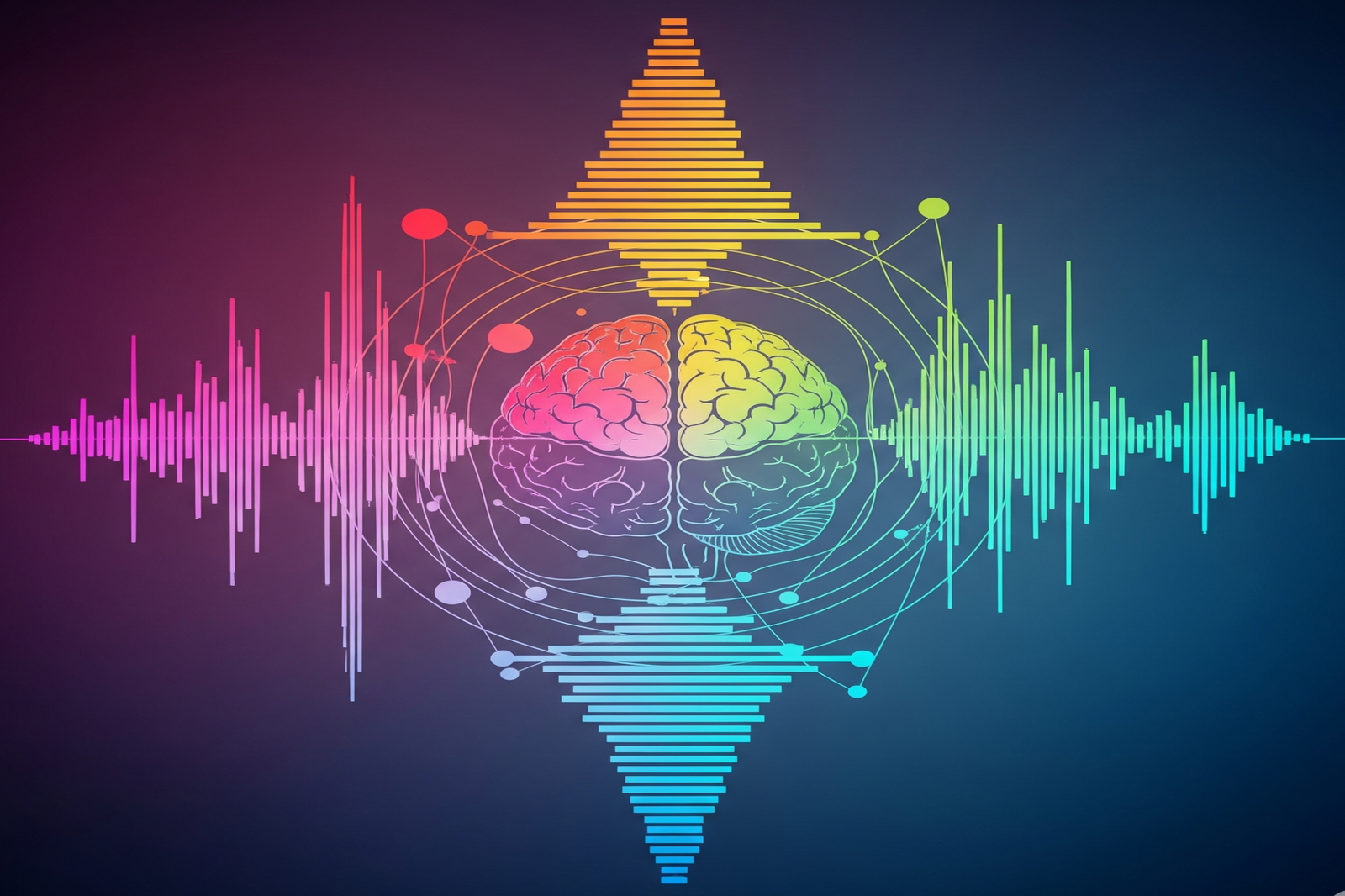How different types of music affect your brain
3 min read
Today with our cell phone, the music is easily accessible so it is everywhere in our live and of course, it is very hard to pass one day without listen music because we always enjoy the benefits of their effect on our humor and behavior. Here are some explanation concerning the effects that can produce some specific type of music on your humor or behavior.
1. Metal & Hard Rock 🤘
- Benefits: For many, the intensity of metal and hard rock can be incredibly cathartic, acting as a powerful emotional release for stress, anger, or frustration. The complex rhythms and intricate structures can also engage the brain in a highly active way, potentially boosting focus for specific tasks that benefit from high arousal. It’s often associated with feelings of empowerment and a strong sense of community.
- Disadvantages: For some individuals, the aggressive nature and high decibels can heighten anxiety, promote overstimulation, or contribute to feelings of agitation. Prolonged exposure at high volumes, of course, poses a risk to hearing health.
2. Soft Rock 🎶
- Benefits: The gentle melodies and smooth harmonies of soft rock are excellent for relaxation and stress reduction. It can lower heart rate, promote a sense of calm, and aid in unwinding after a long day. It’s often a go-to for background music during light work or for comforting nostalgia, potentially boosting mood through pleasant memories.
- Disadvantages: While relaxing, its often low-energy nature might not be ideal for tasks requiring high motivation or intense focus. For some, it can be perceived as passive or even boring, failing to stimulate cognitive engagement.
3. “Crash” (Punk/Hardcore) 💥
- Benefits: This raw, high-energy music can be a powerful stimulant, providing an immediate burst of energy and a sense of rebellion or empowerment. Its straightforward, often aggressive expression can offer catharsis for feelings of frustration or a desire for change. It fosters strong social bonds within its fan base.
- Disadvantages: The abrasive sounds and often shouted vocals can be overstimulating and potentially increase feelings of agitation or anger in some listeners. Its repetitive nature for extended periods might also lead to mental fatigue rather than sustained focus.
4. Blues 🎷
- Benefits: The blues, with its deep emotional resonance, is incredibly effective for processing feelings of sadness, grief or hardship. It offers a sense of shared human experience and empathy, allowing listeners to connect with and express their own emotions in a healthy way. It can be surprisingly uplifting through its themes of resilience and overcoming adversity.
- Disadvantages: If one is already in a vulnerable or melancholic state, prolonged listening to overtly sorrowful blues could potentially deepen feelings of sadness or lead to rumination rather than resolution.
5. Jazz 🎺
- Benefits: Jazz is a powerhouse for cognitive stimulation! Its complex harmonies, improvisational nature, and unexpected melodic turns can enhance creativity, improve problem-solving skills, and engage the brain’s analytical functions. It can promote a state of “flow” for many, aiding in concentration for complex tasks.
- Disadvantages: For those unaccustomed to its complexity, jazz can sometimes be perceived as chaotic or even distracting, making it harder to focus on other activities that require linear thought. Active listening is often required to fully appreciate its benefits, which isn’t always suitable for background noise.
6. Modern Pop Music 🎤
- Benefits: Pop music, with its catchy hooks, upbeat tempos and often relatable lyrics, is fantastic for boosting mood and providing instant energy. It’s highly effective for social bonding (think dancing at parties!) and can release dopamine, creating feelings of pleasure and motivation for repetitive tasks like cleaning or working out.
- Disadvantages: While generally positive, the often simplistic structures and repetitive nature can sometimes lead to mental fatigue if listened for extended periods. For some, the pervasive nature of pop music can also be perceived as overwhelming or generic, lacking deeper engagement.
Ultimately, the “best” music for your brain depends on your individual needs, mood and the task at hand. Experiment, listen mindfully and let your brain lead the way!

